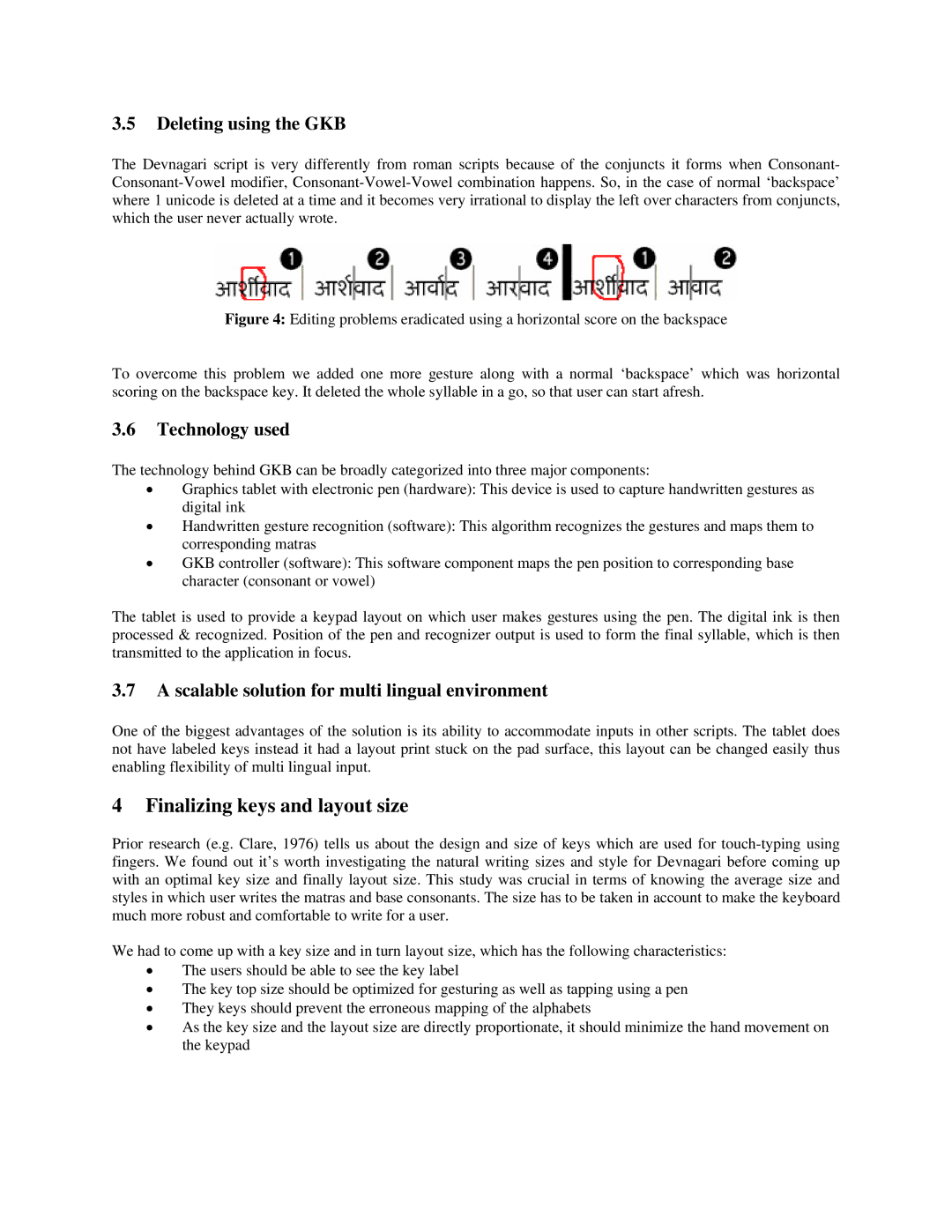3.5Deleting using the GKB
The Devnagari script is very differently from roman scripts because of the conjuncts it forms when Consonant-
Figure 4: Editing problems eradicated using a horizontal score on the backspace
To overcome this problem we added one more gesture along with a normal ‘backspace’ which was horizontal scoring on the backspace key. It deleted the whole syllable in a go, so that user can start afresh.
3.6Technology used
The technology behind GKB can be broadly categorized into three major components:
•Graphics tablet with electronic pen (hardware): This device is used to capture handwritten gestures as digital ink
•Handwritten gesture recognition (software): This algorithm recognizes the gestures and maps them to corresponding matras
•GKB controller (software): This software component maps the pen position to corresponding base character (consonant or vowel)
The tablet is used to provide a keypad layout on which user makes gestures using the pen. The digital ink is then processed & recognized. Position of the pen and recognizer output is used to form the final syllable, which is then transmitted to the application in focus.
3.7A scalable solution for multi lingual environment
One of the biggest advantages of the solution is its ability to accommodate inputs in other scripts. The tablet does not have labeled keys instead it had a layout print stuck on the pad surface, this layout can be changed easily thus enabling flexibility of multi lingual input.
4 Finalizing keys and layout size
Prior research (e.g. Clare, 1976) tells us about the design and size of keys which are used for
We had to come up with a key size and in turn layout size, which has the following characteristics:
•The users should be able to see the key label
•The key top size should be optimized for gesturing as well as tapping using a pen
•They keys should prevent the erroneous mapping of the alphabets
•As the key size and the layout size are directly proportionate, it should minimize the hand movement on the keypad
